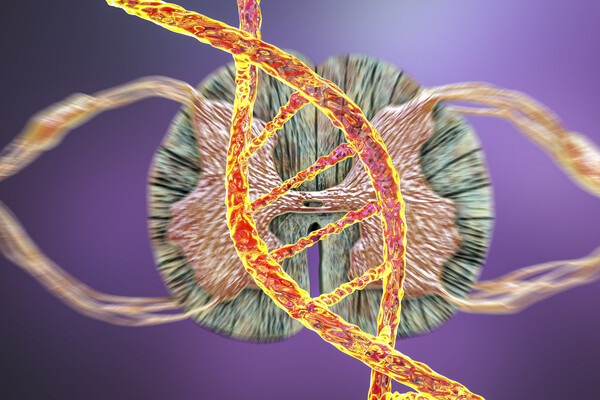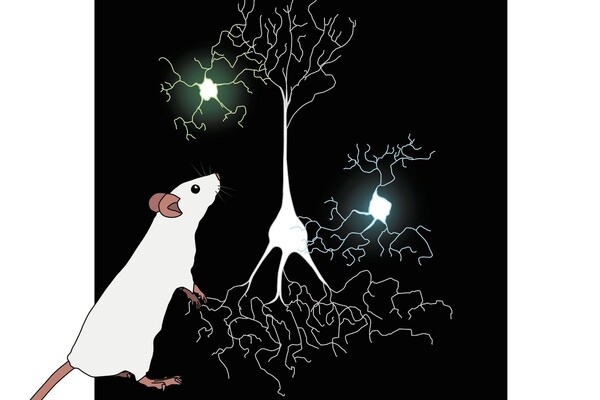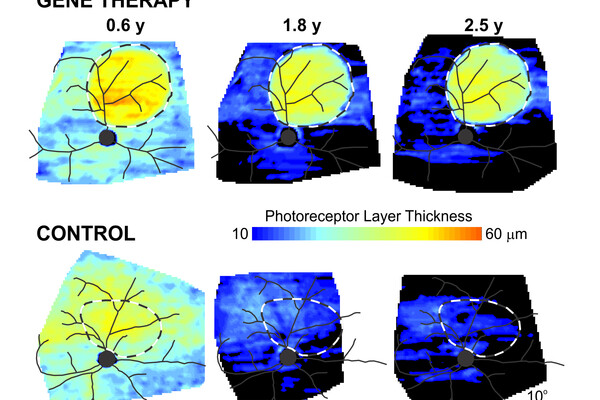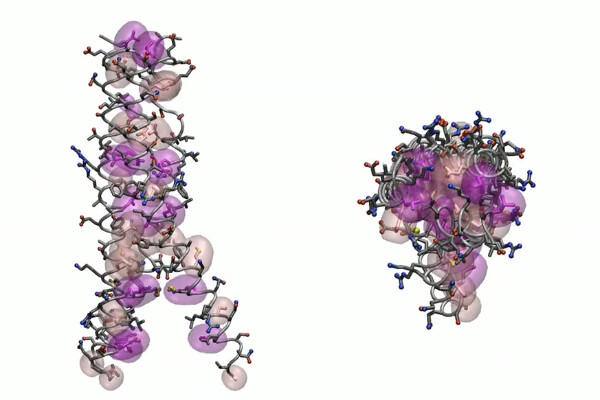5/18
Health Sciences
Penn Researchers: New Neuroimaging Method Better Identifies Epileptic Lesions
Epilepsy affects more than 65 million people worldwide. One-third of these patients have seizures that are not controlled by medications. In addition, one-third have brain lesions, the hallmark of the disease, which cannot be located by conventional imaging methods.
Off-Kilter: Penn Study Identifies Differences in Treatment Effect on Out-of-Balance Microbiome in Crohn's Disease
Different treatments for Crohn's disease in children affects their gut microbes in distinct ways, which has implications for future development of microbial-targeted therapies for these patients, according to a study led by researchers from the Perelman School of Medicine at the University of Pennsylvania
NIH New Innovator Award Goes to Penn Bioengineer for Study of ‘3-D Epigenome’
The National Institutes of Health have named Jennifer Phillips-Cremins, an assistant professor in the University of Pennsylvania School of Engineering and Applied Science’s Department of Bioengineering, as a member of its
Turncoat Protein Regulates Sensitivity of Breast Cancer Cells to Drug, Providing New Target for Preventing Relapses, Finds Penn Study
A surprising, paradoxical relationship between a tumor suppressor molecule and an oncogene may be the key to explaining and working around how breast cancer tumor cells become desensitized to a common cancer drug, found researchers at the Perelman School of Medicine at the University of Pennsylvania
Penn Medicine Researchers Discover Hidden Brain Pathways Crucial to Communication
Being able to understand speech is essential to our evolution as humans. Hearing lets us perceive the same word even when spoken at different speeds or pitches, and also gives us extra sensitivity to unexpected sounds.
Penn Team Maps First Comprehensive Profile of Non-Protein-Coding RNAs to Provide Clinicians with New Way to Diagnose Array of Cancers
Growing insights about a significant, yet poorly understood, part of the genome – the “dark matter of DNA” -- have fundamentally changed the way scientists approach the study of diseases. The human genome contains about 20,000 protein-coding genes – less than 2 percent of the total – but 70 percent of the genome is made into non-coding RNA.
Mother’s Stress Alters Babies’ Gut and Brain
Stress during the first trimester of pregnancy alters the population of microbes living in a mother’s vagina. Those changes are passed on to newborns during birth and are associated with differences in their gut microbiome as well as their brain development, according to a study by Penn researchers.
Penn Study Stops Vision Loss in Late-stage Canine X-linked Retinitis Pigmentosa
Version en français
Penn and BU Study Says Obesity Doesn’t Protect Patients With Cardiovascular Disease
Demographers Samuel Preston of the University of Pennsylvania and Andrew Stokes of Boston University set out to solve a puzzle: Why is it that study after study shows obese or overweight people with cardiovascular disease outliving their normal
Penn Vet-Temple Team Characterizes Genetic Mutations Linked to a Form of Blindness
Achromatopsia is a rare, inherited vision disorder that affects the eye’s cone cells, resulting in problems with daytime vision, clarity and color perception. It often strikes people early in life, and currently there is no cure for the condition.
In the News
What’s going on with tranq?
Jeanmarie Perron of the Perelman School of Medicine says that the appearance and progression of skin ulcers and tissue loss on xylazine users is different than with other intravenous drugs.
FULL STORY →
It’s time to end the Medicare-Medicaid merry-go-round
In an opinion essay, Rachel M. Werner of the Leonard Davis Institute, Wharton School, and Perelman School of Medicine says that Medicare and Medicaid fail to integrate coverage and coordinate care across their two plans.
FULL STORY →
Inside Penn’s transfer center
Penn Medicine’s transfer command center gets patients from affiliated hospitals and hospitals outside Philadelphia to specialized care that can save lives, with comments from CEO Kevin Mahoney.
FULL STORY →
The quest for treatments to keep weight off after Ozempic
Researchers at Penn are conducting a co-authored study of the brains, fat and muscle cells, and eating patterns of people trying to maintain new body sizes.
FULL STORY →
Operating rooms are major sources of greenhouse gasses. Penn is eliminating a form of anesthesia that hangs in the air for more than a decade after use
Penn Medicine is phasing out the anesthesia desflurane at four of its six hospitals to eliminate harmful greenhouse gases, with remarks from Greg Evans.
FULL STORY →











